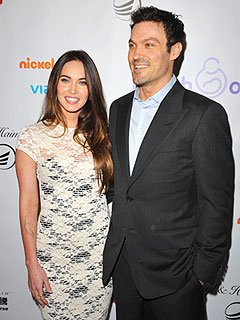WASHINGTON (AP) — Your medical plan is facing an unexpected expense, so you probably are, too. It's a new, $63-per-head fee to cushion the cost of covering people with pre-existing conditions under President Barack Obama's health care overhaul.
The charge, buried in a recent regulation, works out to tens of millions of dollars for the largest companies, employers say. Most of that is likely to be passed on to workers.
Employee benefits lawyer Chantel Sheaks calls it a "sleeper issue" with significant financial consequences, particularly for large employers.
"Especially at a time when we are facing economic uncertainty, (companies will) be hit with a multi-million dollar assessment without getting anything back for it," said Sheaks, a principal at Buck Consultants, a Xerox subsidiary.
Based on figures provided in the regulation, employer and individual health plans covering an estimated 190 million Americans could owe the per-person fee.
The Obama administration says it is a temporary assessment levied for three years starting in 2014, designed to raise $25 billion. It starts at $63 and then declines.
Most of the money will go into a fund administered by the Health and Human Services Department. It will be used to cushion health insurance companies from the initial hard-to-predict costs of covering uninsured people with medical problems. Under the law, insurers will be forbidden from turning away the sick as of Jan. 1, 2014.
The program "is intended to help millions of Americans purchase affordable health insurance, reduce unreimbursed usage of hospital and other medical facilities by the uninsured and thereby lower medical expenses and premiums for all," the Obama administration says in the regulation. An accompanying media fact sheet issued Nov. 30 referred to "contributions" without detailing the total cost and scope of the program.
Of the total pot, $5 billion will go directly to the U.S. Treasury, apparently to offset the cost of shoring up employer-sponsored coverage for early retirees.
The $25 billion fee is part of a bigger package of taxes and fees to finance Obama's expansion of coverage to the uninsured. It all comes to about $700 billion over 10 years, and includes higher Medicare taxes effective this Jan. 1 on individuals making more than $200,000 per year or couples making more than $250,000. People above those threshold amounts also face an additional 3.8 percent tax on their investment income.
But the insurance fee had been overlooked as employers focused on other costs in the law, including fines for medium and large firms that don't provide coverage.
"This kind of came out of the blue and was a surprisingly large amount," said Gretchen Young, senior vice president for health policy at the ERISA Industry Committee, a group that represents large employers on benefits issues.
Word started getting out in the spring, said Young, but hard cost estimates surfaced only recently with the new regulation. It set the per capita rate at $5.25 per month, which works out to $63 a year.
America's Health Insurance Plans, the major industry trade group for health insurers, says the fund is an important program that will help stabilize the market and mitigate cost increases for consumers as the changes in Obama's law take effect.
But employers already offering coverage to their workers don't see why they have to pony up for the stabilization fund, which mainly helps the individual insurance market. The redistribution puts the biggest companies on the hook for tens of millions of dollars.
"It just adds on to everything else that is expected to increase health care costs," said economist Paul Fronstin of the nonprofit Employee Benefit Research Institute.
The fee will be assessed on all "major medical" insurance plans, including those provided by employers and those purchased individually by consumers. Large employers will owe the fee directly. That's because major companies usually pay upfront for most of the health care costs of their employees. It may not be apparent to workers, but the insurance company they deal with is basically an agent administering the plan for their employer.
The fee will total $12 billion in 2014, $8 billion in 2015 and $5 billion in 2016. That means the per-head assessment would be smaller each year, around $40 in 2015 instead of $63.
It will phase out completely in 2017 — unless Congress, with lawmakers searching everywhere for revenue to reduce federal deficits — decides to extend it.











